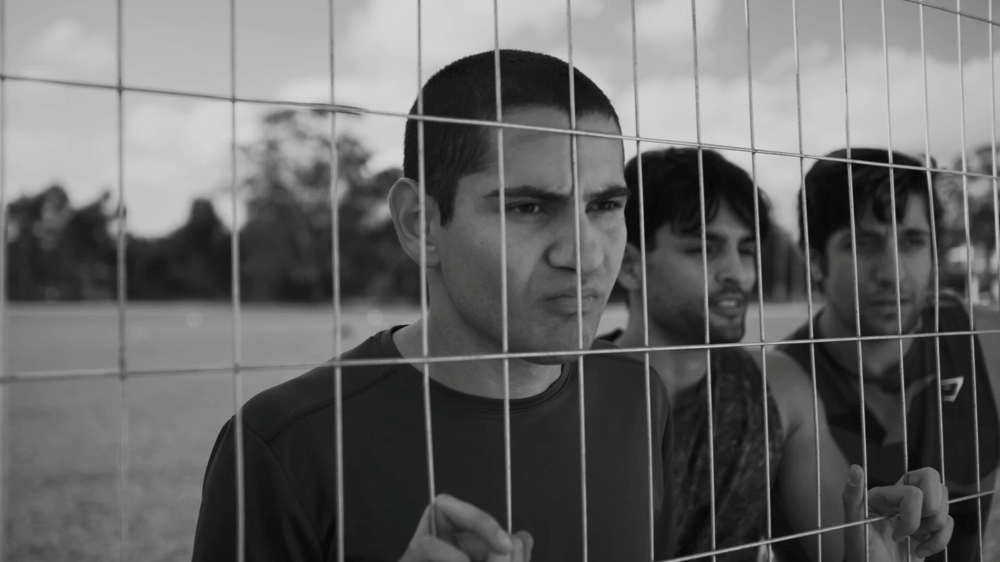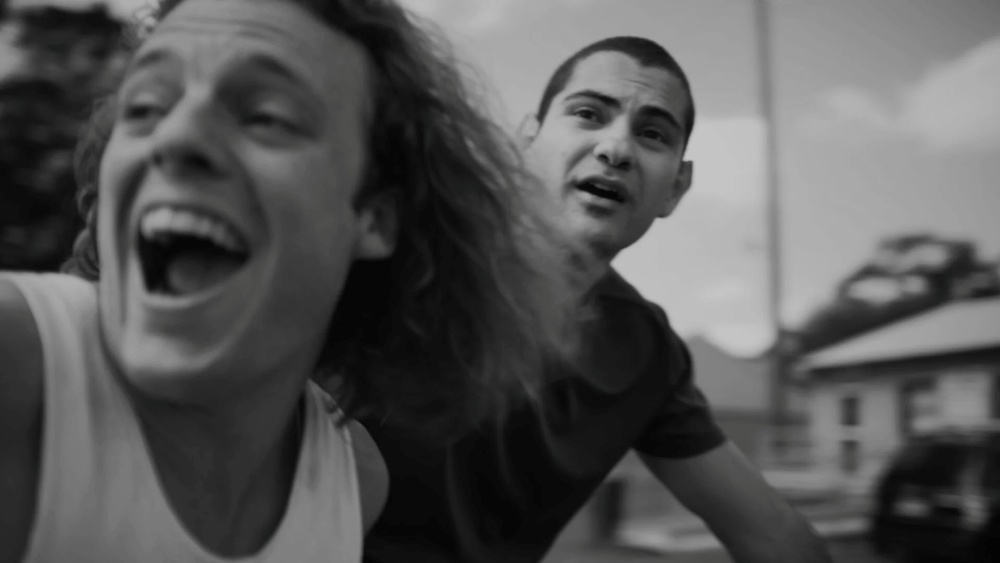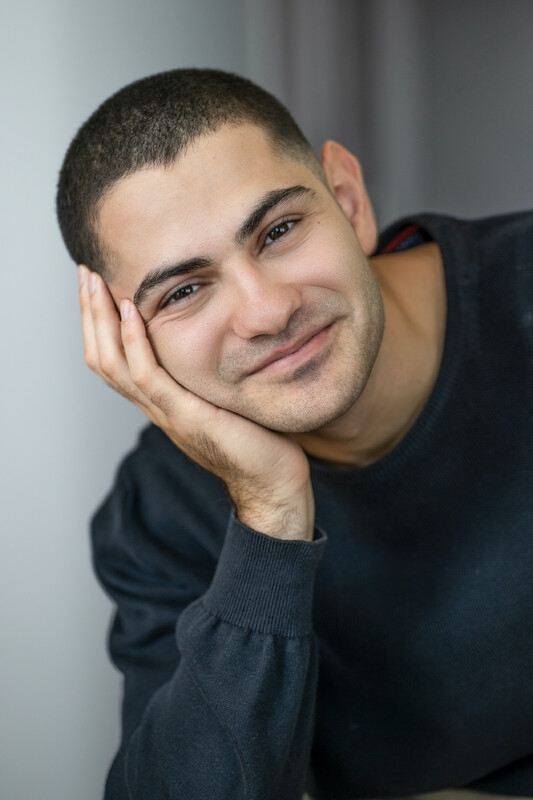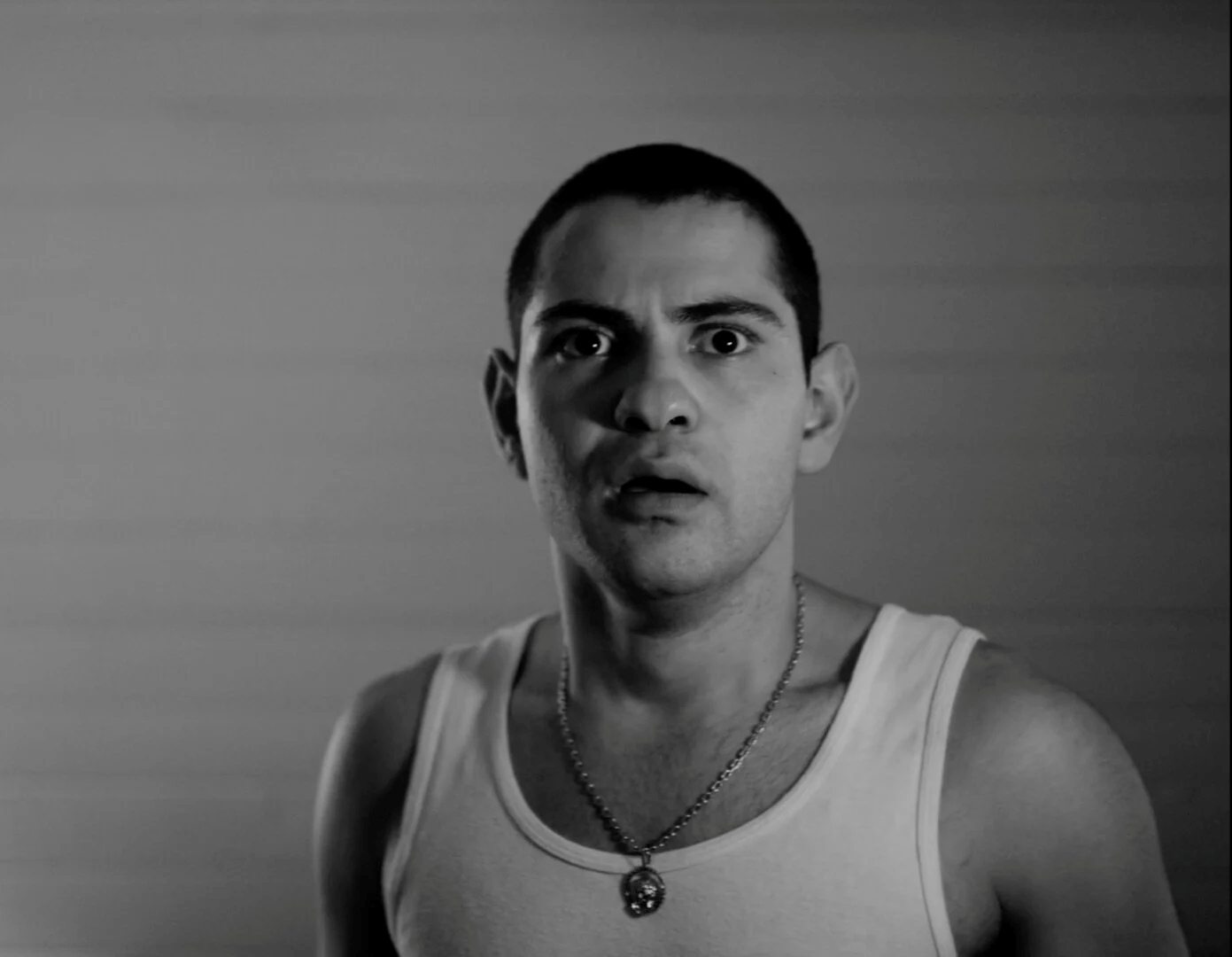| To my home that I hate and that I love,
Where the sunsets are the best in the world, but once the sun’s set the
streets become the worst in the world.
Where struggle is our normality, but that same struggle gives us humility.
We don’t have money, but we have a view of the mountains.
We have less, but we have no resentment.
Where there’s more skin colours than jobs, but we are welcome regardless.
I hated my home for so long.
So I made this film — a love letter to my home, a love letter to a place I
will never forget.
And I hope one day, this place never forgets me.
Blacktown, Blacktown, Blacktown

“I first fell in love with acting because of my obsession with the soap opera Home and Away — I was hooked on the idea of being on TV,” says Tigran Tovmasian, a mile away from Summer Bay. “As I got older, there were long, quiet periods where opportunities were scarce for a short Armenian boy from Western Sydney. Rather than waiting around, I decided to create something for myself. Initially, it was just meant to be a calling card for my acting, but in the process of making this film, I completely fell in love with filmmaking. Acting will always be my first love, but I’ve realised that I don’t need to limit myself to just that anymore.”
The result is The Circus Lion, a powerful short film about Samvel, a young man (played by Tovmasian, who also writes, produces and directs the film) pursuing his sporting ambitions as a wrestler, whilst trying to fit in with his team and meet a girl amidst a complicated life at home with a traumatised mother and an absent father.

How hard was it to star in the film as well as direct?
“Juggling both roles meant that I had to trust my team and plan everything meticulously. But because the story was so personal, I felt I was the best person to bring Samvel to life. There were moments of exhaustion, but also moments of flow where it all just made sense. I don’t regret a second of it.”
Why black and white?
“The absence of colour helped heighten the emotional weight of Samvel’s world. It removed any distractions and brought everything back to what mattered most — the silence, the tension, the raw emotion. Visually, it gave the film a timeless, stripped-back aesthetic that reflected Samvel’s internal landscape: gritty, cold, and confronting, but deeply honest.”
 What does The Circus Lion mean to you in terms of the film’s title? What does The Circus Lion mean to you in terms of the film’s title?
“I, in a way, felt like a circus lion in my younger days growing up in Blacktown. I felt stuck in the town, with no resources to get out — like I was thousands of miles away from my true habitat or where I was supposed to be. There was this constant feeling of wasted potential, like I had something powerful inside me but no real outlet or path forward. That’s what the title represents: being caged by your circumstances, yet knowing deep down that you were made for more. The title summed up in the most poetic way how I felt all those years.”
How true/personal is the story to you, and was it cathartic to make the film?
“The story is deeply personal. A lot of Samvel’s internal conflict mirrors my own — I’ve dealt with not fitting in, and for a long time, I thought the only solution to my pain was to escape the place where it all happened. I also spent years isolating myself and denying love from the people around me, mistaking that distance for strength — a distorted sense of masculinity I had to unlearn. Making this film was extremely cathartic. It helped me face those truths and express what I couldn’t articulate in real life. In many ways, it became a way of honouring the pain, while also releasing it.”
Why do you think there are stories to be told in Western Sydney?
“Western Sydney is full of grit, heart, and untold stories. It’s a place often misunderstood or reduced to stereotypes, but the people here are complex, resilient, and diverse. There’s so much authenticity and energy here — it’s time that was reflected on screen with truth and nuance.
What was the budget? How did you fund the film?
“The initial budget was just $3,000—that was all I could afford at the time. Looking back, that was pretty naive. Once we started, it became clear that it wouldn’t be enough. So, I took out credit cards and worked myself to the bone to cover the costs. By the end, the film cost close to $20,000.
“I didn’t want to wait around for studio funding or grants that might never come—I had a story that was burning inside me, and I knew I had to tell it now. It was a huge risk, but I believed in the project, and I believed that if we put our whole hearts into it, the rest would follow.”
What’s next?
“First and foremost, I’m an actor—so I’ll continue to grow in my craft and pursue roles that challenge and inspire me. The Circus Lion is also my way of stepping out into the world as a storyteller, and we plan to take it global, screening at festivals and connecting with audiences everywhere. Beyond that, I’m developing Papik, a poetic feature based on my journey through Armenia during the Artsakh war, and The Mountain Men, a short psychological thriller about a toxic masculinity camp in the mountains.”
AACTA members can vote for The Circus Lion as Best Short Film in the 2026 AACTA Awards |
